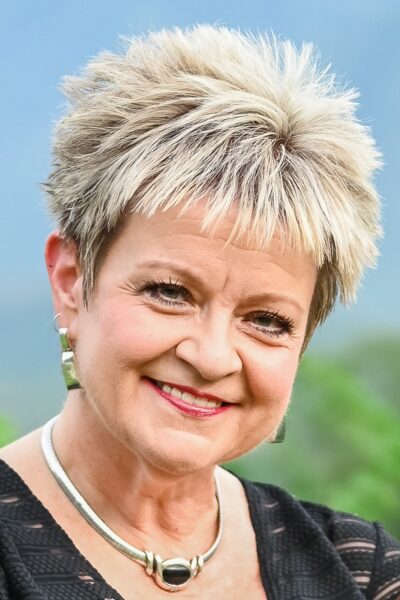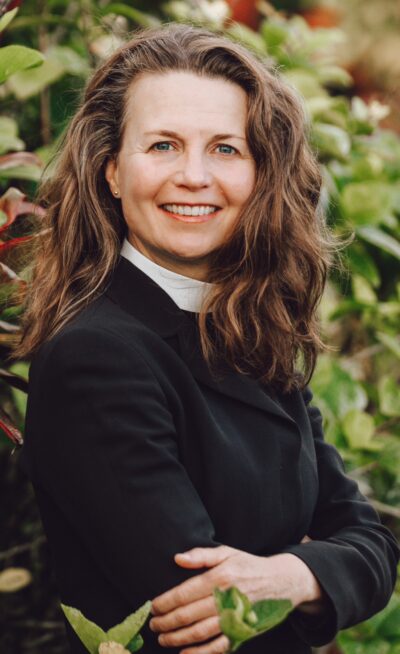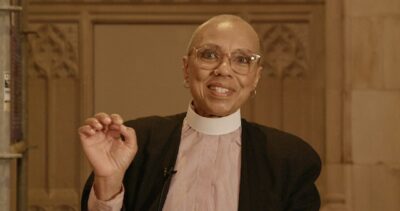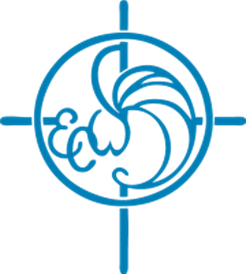Musician Triennial 2024
 Elaine Conger
Elaine Conger
Musician for Triennial 2024
Music is Elaine’s life. Yes, she’s a performer but, the performance is driven by a continuous playlist that swirls in a place deep within her. It’s not the genre of music nor the audience that drives her musical life, it’s a desire to have expression or an emotion guide her in artistic directions.
She considers her style “contemplative” Christian music, but she also blends those well-loved songs and hymns from the past, making them sound new to a younger generation. The approach is like how a change to the verbiage of prayers and litanies enables a translation of the Bible to make it so that people of today can understand its true meaning.
Triennial 2024 is a benchmark event and she realizes the importance of the women of the Episcopal Church celebrating their 150-year anniversary since the Women’s Auxiliary was formed. It’s important to give the people what they want. Yet, God doesn’t give someone what they want, He gives them what they need.
The same as when the Early church gave the illiterate people a means to understand the scriptures with secular tunes coupled with sacred lyrics. It’s important her music is relatable. There’s a fine line between performing for the purpose of self-gratification and instead presenting a means for those attending to be engaged in the Spirit, by the Spirit, and to want to be in praise of the Lord and Savior.
Elaine’s path to becoming the musician for Triennial is filled with a graceful story of building her career around Spirit and “feeling called to something more than sitting at the organ bench,” as she states. She has served as the music director for two Episcopal parishes: 11 years at Grace Episcopal in Paris, TN, and upon moving to Gatlinburg in East TN at Trinity Episcopal for 4 years. In 2022, she served as the Artist-in-Residence for half the year at St. Joseph’s Episcopal Church in Boynton Beach, FL. While there she planned and arranged music for a contemporary service featuring a band and modern music, but she always found a way to throw in a hymn as the lectionary dictated to honor our beloved hymns yet making them sound “groovier.”
She explains that by changing the meter and/or tempo you can make a hymn sound like it was written in this century; however, by not messing with the lyrics you keep all the doctrine that our historical hymn writers worked so hard creating.
To learn more about Elaine, visit her website at ElaineConger.com.

 La Rev. Catherine Amy Kropp
La Rev. Catherine Amy Kropp Conociendo al capellán de la Trienal
Conociendo al capellán de la Trienal As is customary, the national board dresses and enters the Triennial opening ceremony attired as a prior leader of the Church, the Bible, or historical figure. These representations illustrate ideals each board member wishes to share with the women gathered at Triennial. As you read through this issue of the Communique’, be aware of the blue ECW crosses. Each of the woman’s persona is marked with this cross.
As is customary, the national board dresses and enters the Triennial opening ceremony attired as a prior leader of the Church, the Bible, or historical figure. These representations illustrate ideals each board member wishes to share with the women gathered at Triennial. As you read through this issue of the Communique’, be aware of the blue ECW crosses. Each of the woman’s persona is marked with this cross.